As loving pet parents, we naturally want to share every moment with our furry companions, and sometimes that includes sharing our food. However, what tastes delicious and is perfectly safe for humans can be extremely dangerous, even fatal, for dogs. It’s crucial to understand what meat shouldn’t you feed your dog, along with other common human foods that pose a serious threat. Protecting your canine companion means being vigilant about their diet and ensuring they steer clear of potentially toxic ingredients. This comprehensive guide will help you navigate the do’s and don’ts of canine nutrition, ensuring your beloved pet stays healthy and happy.
The Dangers of Certain Meats and Fatty Foods for Dogs
While meat is a cornerstone of a dog’s diet, not all forms of meat are created equal or safe for consumption. Several types of meat, or ways meat is prepared, can be detrimental to your dog’s health.
Raw or Undercooked Meats
Feeding raw or undercooked meat to your dog carries significant risks. While some proponents advocate for raw diets, the dangers often outweigh the perceived benefits, especially without expert guidance.
- Bacterial Contamination: Raw meat can harbor harmful bacteria like Salmonella, E. coli, and Listeria. These pathogens can cause severe gastrointestinal illness in dogs, leading to vomiting, diarrhea, lethargy, and even life-threatening conditions. More concerning, these bacteria can also be transferred to humans, posing a public health risk.
- Parasites: Raw meat can contain parasites such as Toxoplasma gondii or tapeworms, which can cause a range of health issues for your dog, including neurological problems or severe digestive upset. Proper cooking eliminates these threats.
Processed Meats
Processed meats, often staples in human diets, are a definite no-go for dogs. These include items like hot dogs, sausages, deli meats, and ham.
- High Sodium Content: Processed meats are typically loaded with sodium, which can lead to excessive thirst and urination, and in severe cases, sodium ion poisoning. This can cause kidney damage, vomiting, diarrhea, tremors, and seizures.
- Unhealthy Fats: Many processed meats are high in saturated fats. These can upset your dog’s digestive system, leading to vomiting and diarrhea. Over time, a diet rich in unhealthy fats can contribute to obesity and more serious conditions like pancreatitis.
- Additives and Preservatives: Processed meats often contain nitrates, nitrites, and other artificial preservatives and flavorings that are not suitable for dogs and can be toxic or lead to long-term health problems.
Cooked Bones
While it might seem natural to give a dog a bone, cooked bones are extremely dangerous.
- Splintering: Unlike raw bones, cooked bones become brittle and can easily splinter into sharp fragments. These fragments can cause choking, lacerate the esophagus, stomach, or intestines, or lead to blockages requiring emergency surgery.
- Choking Hazard: Large pieces of cooked bone can get stuck in your dog’s throat or digestive tract.
Fatty Foods
As mentioned in the original article’s list of bad foods for dogs, fatty foods are particularly problematic. These often include the fat trimmed from meat, bacon, ribs, or fried chicken.
- Pancreatitis: Excessive fat intake is a leading cause of pancreatitis, an inflammation of the pancreas that can be extremely painful and life-threatening for dogs. Symptoms include severe abdominal pain, vomiting, diarrhea, lethargy, and loss of appetite. Some breeds, like Miniature Schnauzers and Yorkshire Terriers, are more predisposed to this condition. If you notice your dog hunched over with tummy pain, contact your vet immediately.
- Gastrointestinal Upset: Even without leading to pancreatitis, high-fat foods can cause acute digestive upset, resulting in vomiting and diarrhea. For advice on what to feed a dog with an upset stomach, check out our guide on what should i feed a dog with an upset stomach.
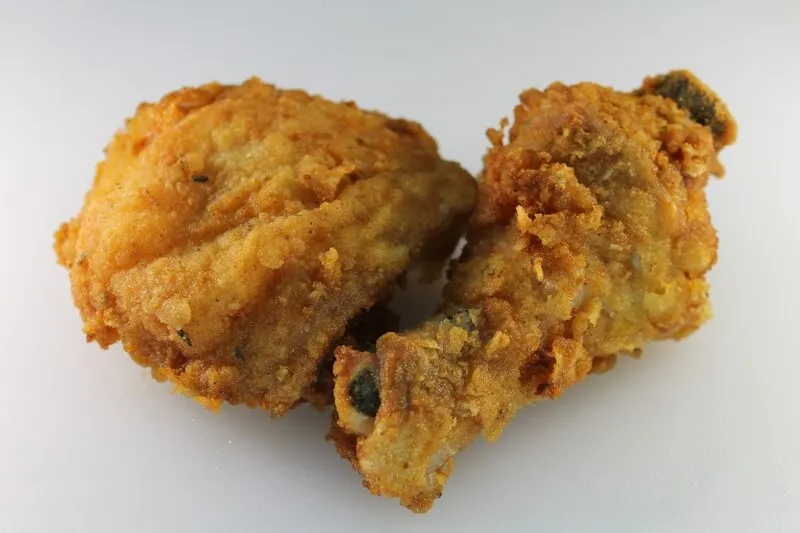 Fatty foods like bacon and ribs, which can lead to pancreatitis in dogs.
Fatty foods like bacon and ribs, which can lead to pancreatitis in dogs.
Other Highly Toxic Foods Your Dog Should Avoid
Beyond specific meats and fatty preparations, many other human foods are toxic to dogs. It’s vital to be aware of these dangers to protect your pet. Many of these are listed in our broader guide on what you should never feed your dog.
1. Chocolate
Chocolate is a well-known canine toxin, containing caffeine and theobromine. These stimulants can cause a dog’s heart rate and blood pressure to skyrocket, leading to vomiting, diarrhea, tremors, seizures, and even death. The darker the chocolate, the more dangerous it is due to higher concentrations of these substances. Smaller breeds are particularly vulnerable to even small amounts.
 A curious dog eyeing a piece of dark chocolate, a food to avoid.
A curious dog eyeing a piece of dark chocolate, a food to avoid.
2. Gum, Candy, and Xylitol
Giving a dog gum or candy might seem amusing, but it’s far from harmless. These sticky substances can cause choking or blockages in the digestive system if swallowed. Hard candies can also fracture teeth.
More critically, many sugar-free gums and candies, as well as some desserts, yogurts, and even peanut butter, contain Xylitol. This artificial sweetener causes a rapid and severe drop in blood sugar (hypoglycemia) in dogs, leading to seizures and potentially liver failure. Always check ingredient labels for Xylitol before sharing any human food with your dog.
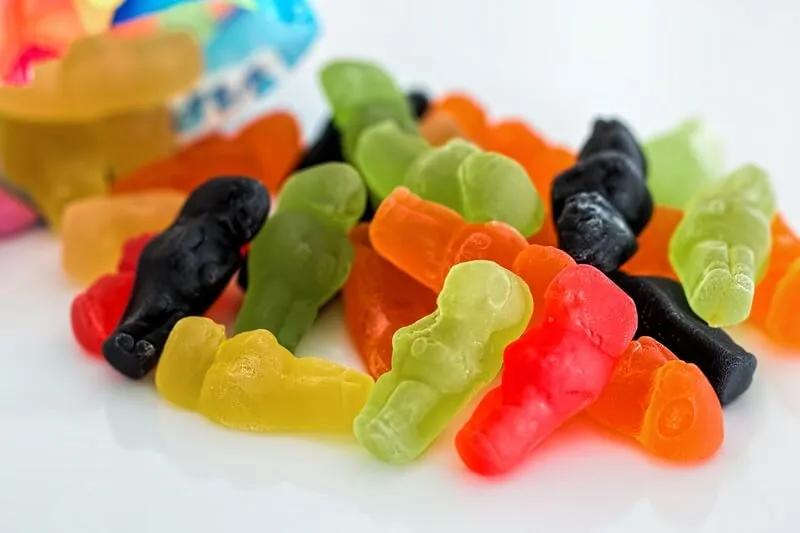 A playful dog attempting to chew gum, which can be a choking hazard.
A playful dog attempting to chew gum, which can be a choking hazard.
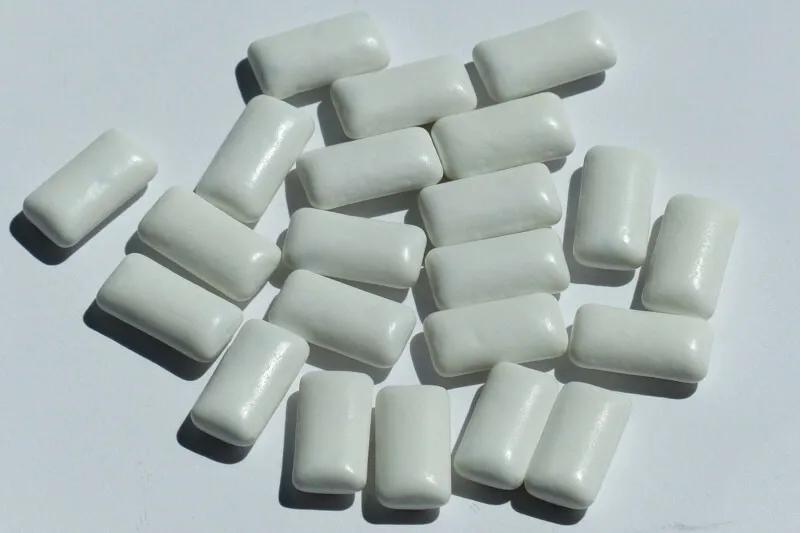 A sugar-free candy with Xylitol, a dangerous ingredient for dogs.
A sugar-free candy with Xylitol, a dangerous ingredient for dogs.
3. Grapes and Raisins
Grapes and their dried counterparts, raisins, are highly toxic to dogs and can cause sudden kidney failure. Even a single grape or raisin can trigger a severe reaction. Keep all grape products, including fruit salads, out of reach.
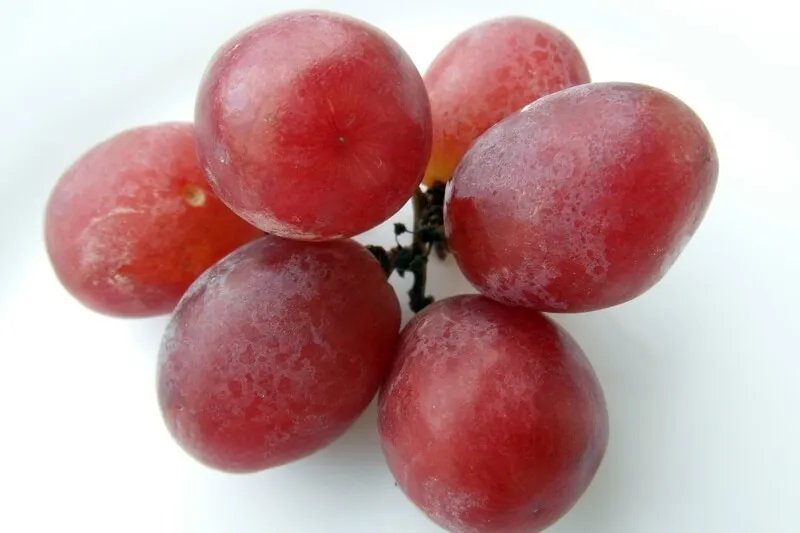 A bowl of fresh grapes, highly toxic and forbidden for dogs.
A bowl of fresh grapes, highly toxic and forbidden for dogs.
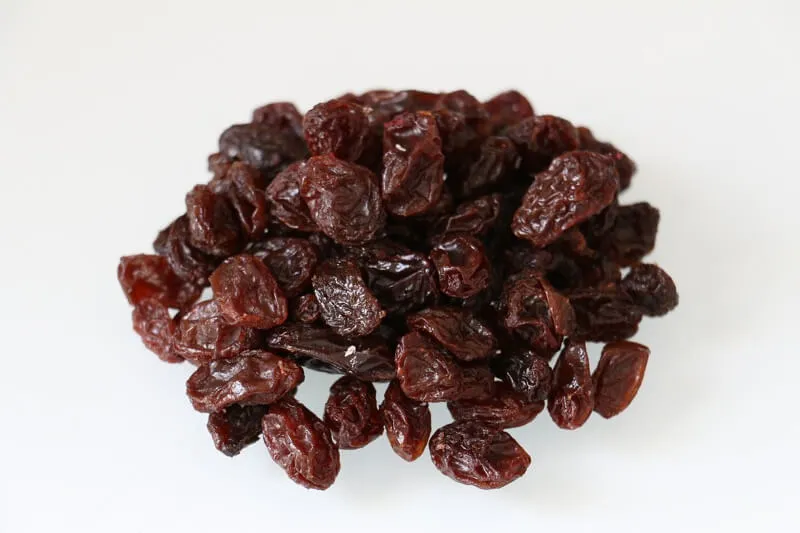 Dried raisins, just as harmful to dogs as fresh grapes.
Dried raisins, just as harmful to dogs as fresh grapes.
4. Macadamia Nuts
The exact toxic agent in macadamia nuts is unknown, but they can cause severe reactions in dogs, including vomiting, weakness, hyperthermia, tremors, and temporary paralysis. Avoid giving your dog any foods containing these nuts.
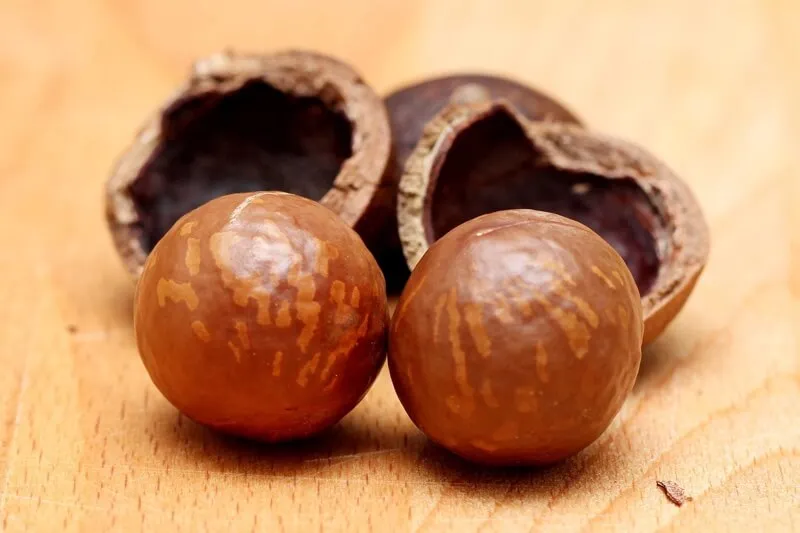 Macadamia nuts, a common snack that can cause tremors and vomiting in dogs.
Macadamia nuts, a common snack that can cause tremors and vomiting in dogs.
5. Avocados
Avocados contain persin, a substance that can be harmful to dogs, especially in the leaves and skin. While some varieties contain less persin, it’s safest to keep your dog away from all parts of the avocado and avocado-based products like guacamole.
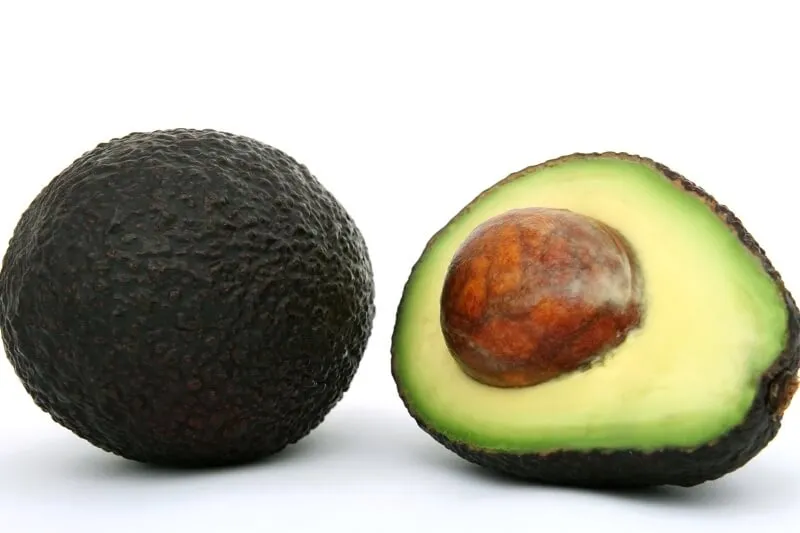 A sliced avocado, containing persin which is harmful to dogs.
A sliced avocado, containing persin which is harmful to dogs.
6. Onions and Garlic
Both onions and garlic (and other members of the Allium family like chives and leeks) contain compounds that can damage a dog’s red blood cells, leading to anemia and making them unable to carry oxygen efficiently. This can be fatal. Dogs can ingest these from dropped slices, onion rings, pearl onions, or even onion and garlic powder found in many human foods. Be mindful of these common ingredients in your cooking. For more specific information, you can also consult articles like what vegetables not to give dogs.
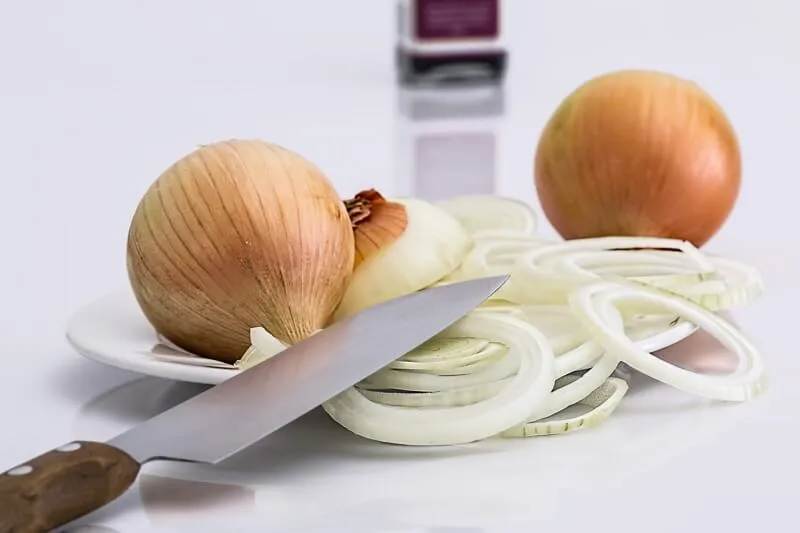 Freshly sliced onions, dangerous for dogs as they damage red blood cells.
Freshly sliced onions, dangerous for dogs as they damage red blood cells.
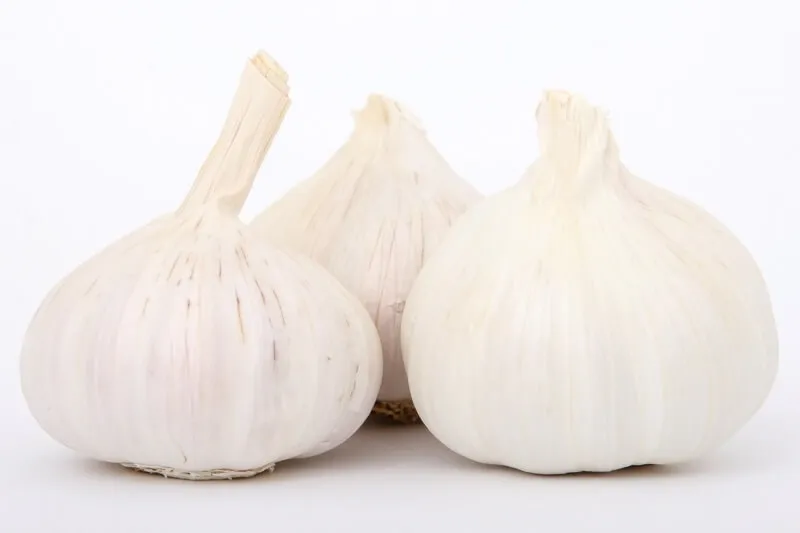 Garlic cloves on a cutting board, another harmful food for dogs.
Garlic cloves on a cutting board, another harmful food for dogs.
7. Salt
While salt is essential in small amounts, too much can lead to sodium ion or salt poisoning in dogs. This can damage the kidneys and cause excessive thirst and urination, vomiting, and diarrhea. Avoid giving your dog salty snacks like chips, pretzels, or popcorn, and be careful with foods seasoned heavily with salt.
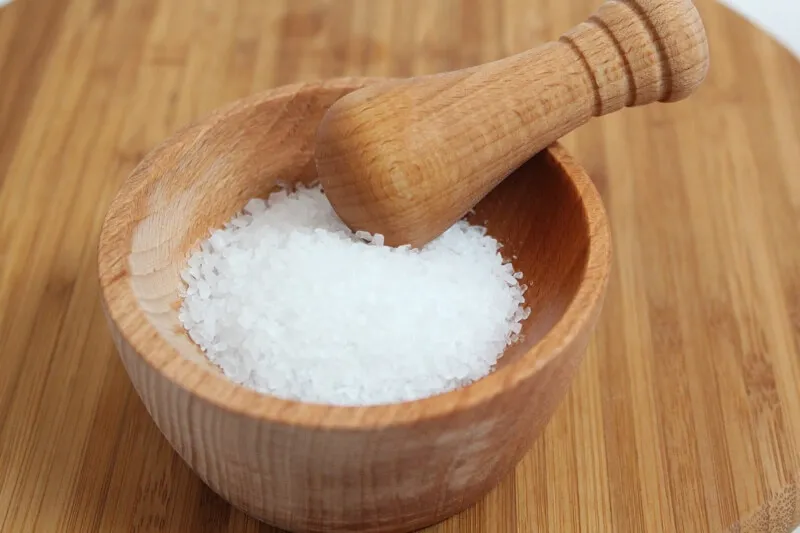 Salty snacks like chips and pretzels, which can cause sodium ion poisoning in dogs.
Salty snacks like chips and pretzels, which can cause sodium ion poisoning in dogs.
8. Tea Leaves and Coffee
Similar to chocolate, tea leaves and coffee contain caffeine, a stimulant that is toxic to dogs. Ingestion can cause restlessness, hyperactivity, elevated heart rate, tremors, and seizures. This applies to brewed coffee, coffee grounds (even used ones), whole beans, and tea bags. Store these items securely away from curious paws.
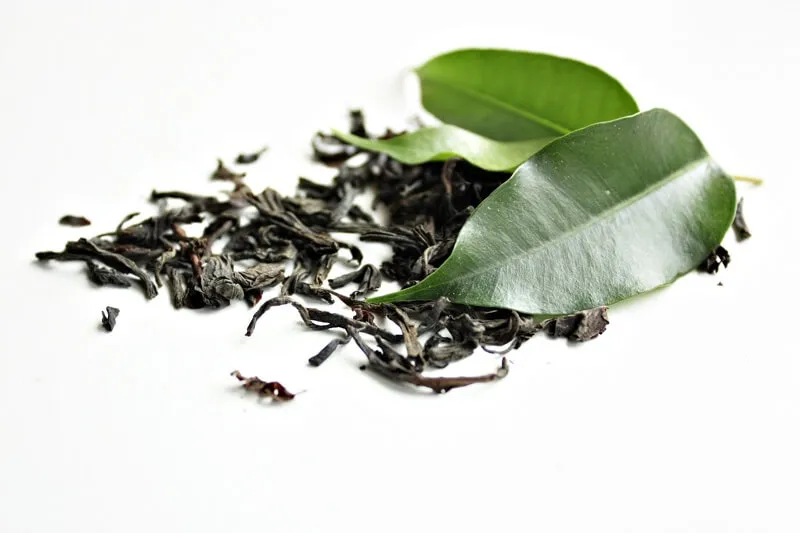 Tea bags and a cup of tea, containing caffeine that is toxic to dogs.
Tea bags and a cup of tea, containing caffeine that is toxic to dogs.
 A cup of coffee and beans, a significant source of caffeine toxic to dogs.
A cup of coffee and beans, a significant source of caffeine toxic to dogs.
9. Raw Yeast Dough
If you’re baking, keep raw yeast dough well away from your dog. The yeast can expand rapidly in a dog’s warm stomach, causing painful gas, bloating, and potentially a life-threatening condition called gastric dilatation-volvulus (bloat), where the stomach twists. Furthermore, yeast fermentation produces alcohol, leading to a risk of alcohol intoxication.
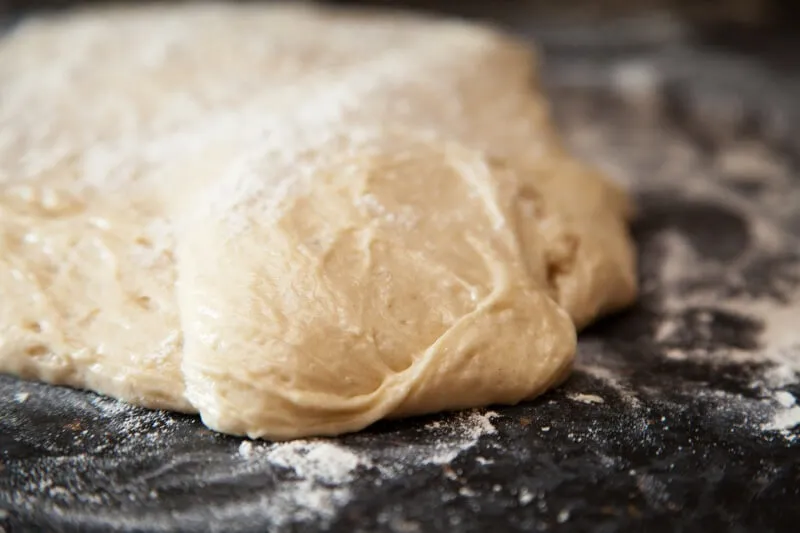 Raw yeast dough rising, which can expand painfully in a dog's stomach.
Raw yeast dough rising, which can expand painfully in a dog's stomach.
10. Spoiled or Moldy Foods
Your garbage can be a treasure trove of harmful substances for a scavenging dog. Spoiled or moldy foods can contain various toxins, including mycotoxins, which can cause severe muscle tremors, seizures, and other neurological symptoms. Always secure your trash bins, especially outdoor ones, to prevent your dog from foraging.
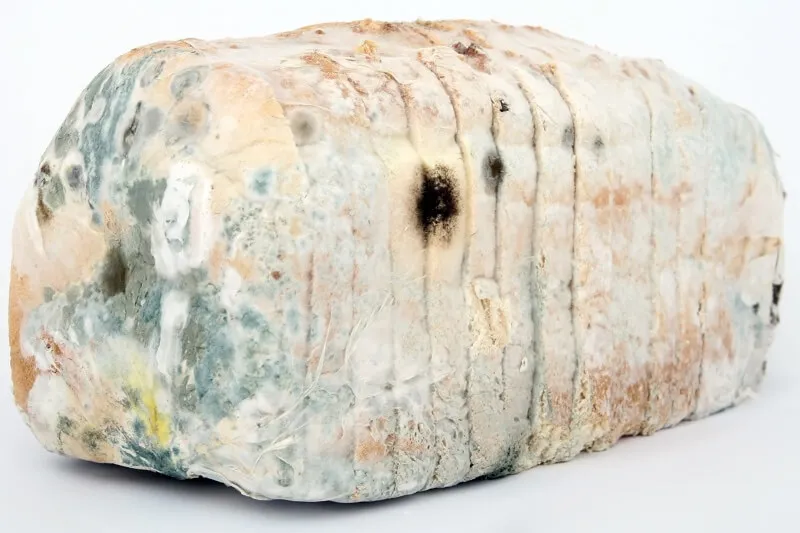 Moldy food in a garbage can, a source of dangerous mycotoxins for pets.
Moldy food in a garbage can, a source of dangerous mycotoxins for pets.
11. Alcohol
Even small amounts of alcohol can have profound and dangerous effects on dogs. Just like in humans, it affects the nervous system, but dogs are much more sensitive, especially smaller breeds. Alcohol can lead to vomiting, diarrhea, tremors, disorientation, difficulty breathing, coma, and even death. Never offer your dog alcoholic beverages, and be diligent about securing drinks during parties or gatherings.
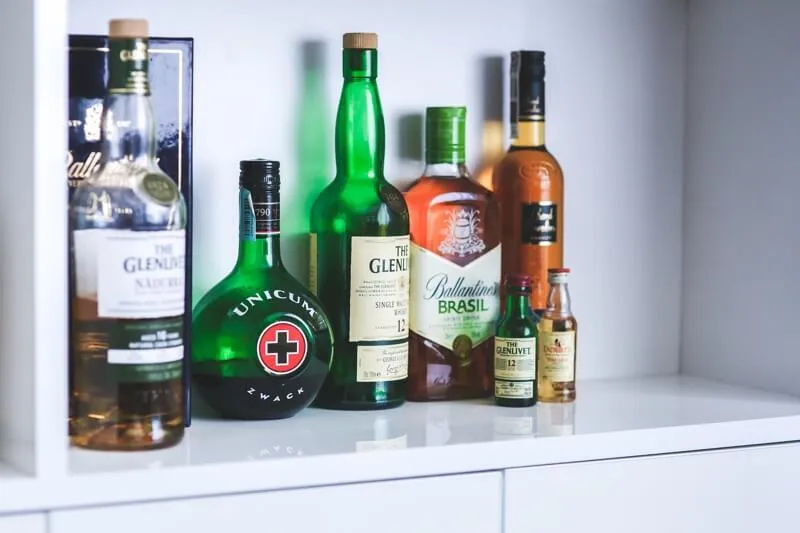 An alcoholic beverage, which can severely affect a dog's nervous system.
An alcoholic beverage, which can severely affect a dog's nervous system.
What Dogs Are at Risk?
Any dog, regardless of breed, size, or age, is susceptible to the dangers of toxic foods. However, some dogs might be at higher risk due to their personality traits. Highly curious dogs or those prone to exploring with their mouths may require closer supervision. It’s essential for all dog owners to be proactive in pet-proofing their homes and educating themselves about dangerous substances.
 A concerned dog owner comforting their unwell pet after suspected poisoning.
A concerned dog owner comforting their unwell pet after suspected poisoning.
What to Do in a Dog Poison Emergency
Despite all precautions, accidents can happen. If you suspect your dog has ingested a harmful food or substance, immediate action is crucial:
- Stay Calm: Panic can hinder your ability to think clearly. Take a deep breath and focus on the next steps.
- Contact Your Veterinarian or Animal Poison Control: Call your regular vet immediately. If they are unavailable, or if it’s after hours, contact the ASPCA Animal Poison Control Center (APCC) at 888-426-4435. They are available 24/7. Be prepared to provide information about what your dog ate, how much, and when. (A consultation fee may apply for APCC).
- Do Not Induce Vomiting Unless Instructed: Never try to treat your dog without professional advice. Inducing vomiting inappropriately can cause further harm.
- Gather Information: If possible, collect a sample of the substance your dog ingested or the packaging, as this can help veterinarians quickly identify the toxin and administer the correct treatment.
- Follow Professional Advice: Depending on the situation, your vet may need to perform diagnostic tests, induce vomiting, administer IV fluids, or prescribe medications. In severe cases, hospitalization might be necessary.
While these treatments can be costly, having a pet health insurance plan, such as an ASPCA Pet Health Insurance plan, can help manage unexpected veterinary bills. Getting a quote for your dog now can provide peace of mind, knowing you’ll have support covering medical expenses if your dog ever encounters a toxic food.
In summary, protecting your dog from harmful foods, including certain meats and numerous household items, is a critical part of responsible pet ownership. By understanding the risks and knowing how to respond in an emergency, you can ensure your dog lives a long, healthy, and happy life.
